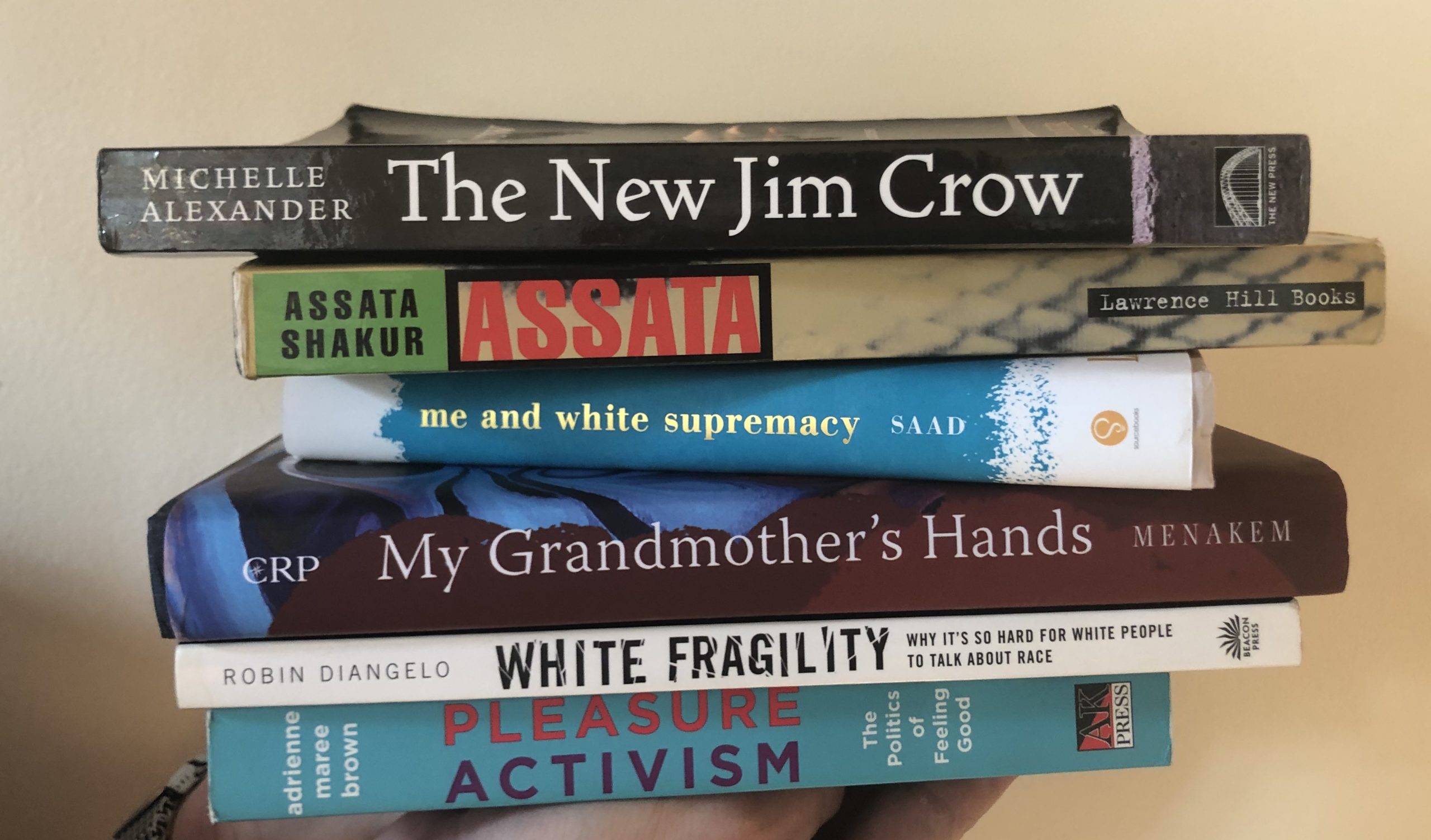
Let’s Get To Work
4) Shame. Shame about not finding the right words to say. Shame about not doing anything sooner. Shame of our too-little-too-late realization about what it really means to be safe, to be recognized, to be humanized, to exist in dignity. How sorely we’ve taken it all for granted. How complicit we’ve been in securing the spokes of a society that allows for such uneven distribution of justice (what do we call the injustice of unevenly distributed “justice”?).
It is critical that we do not let our shame morph into self-pity – but instead, let it be our motivating agent. Shame has the power to drive us in unspeakable ways. It is complex and layered; it weaves the personal and the interpersonal and the existential and the political. It grips, and when left ignored, it follows us everywhere. The particular brand of shame we’re facing right now – white shame – stirs unlike other difficult emotions because this one is begging to speak with us. And if we begin to respond to that call, it can become a north star.
So rather than burying our white shame, let us try befriending it by, once again, asking some questions: What brought us to this moment? And what messages has shame been sent to teach me? Those conversations, which can begin privately in the sacred confines of our own souls, will be deeply instructive in preparing us to respond to the question: “but what do I do?”



